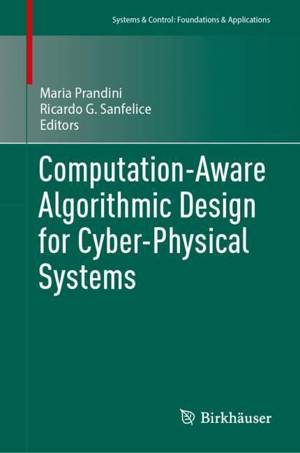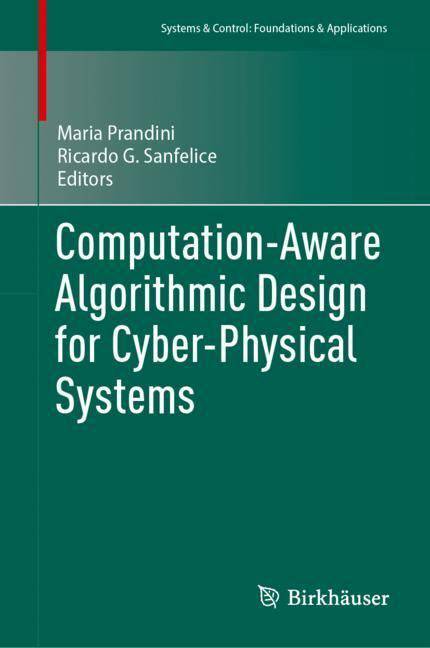
- Afhalen na 1 uur in een winkel met voorraad
- Gratis thuislevering in België vanaf € 30
- Ruim aanbod met 7 miljoen producten
- Afhalen na 1 uur in een winkel met voorraad
- Gratis thuislevering in België vanaf € 30
- Ruim aanbod met 7 miljoen producten
Zoeken
Computation-Aware Algorithmic Design for Cyber-Physical Systems
€ 137,45
+ 274 punten
Omschrijving
This contributed volume aims to build the foundation of a framework for computationally aware algorithmic design for cyber-physical systems (CPSs), focusing on approaches that take computation into account at the design stage to address their impact on performance and safety. It demonstrates how novel techniques may emerge from the combination of formal methods, model predictive control, distributed optimization, data-driven methods, reconfigurable/adaptive methods, and information-theoretic techniques.
Chapters are written by both researchers and practitioners and cover such topics as
Graduate students and researchers with an interest in CPS verification and control will find this volume to be a valuable resource in their work. It will also appeal to researchers from disciplines other than control, such as computer science, operations research, applied mathematics, and robotics.
Chapters are written by both researchers and practitioners and cover such topics as
- analysis and design of uncertain CPSs,
- cooperative and non-cooperative paradigms for handling complexity in large scale CPSs,
- task-relevant environment abstractions for autonomous systems based on information theory,
- information flow in event-based stabilization of CPSs,
- set-valued model predictive control, and
- automated synthesis of certifiable controllers for CPSs.
Graduate students and researchers with an interest in CPS verification and control will find this volume to be a valuable resource in their work. It will also appeal to researchers from disciplines other than control, such as computer science, operations research, applied mathematics, and robotics.
Specificaties
Betrokkenen
- Uitgeverij:
Inhoud
- Aantal bladzijden:
- 249
- Taal:
- Engels
- Reeks:
Eigenschappen
- Productcode (EAN):
- 9783031434471
- Verschijningsdatum:
- 17/12/2023
- Uitvoering:
- Hardcover
- Formaat:
- Genaaid
- Afmetingen:
- 156 mm x 234 mm
- Gewicht:
- 539 g

Alleen bij Standaard Boekhandel
+ 274 punten op je klantenkaart van Standaard Boekhandel
Beoordelingen
We publiceren alleen reviews die voldoen aan de voorwaarden voor reviews. Bekijk onze voorwaarden voor reviews.










